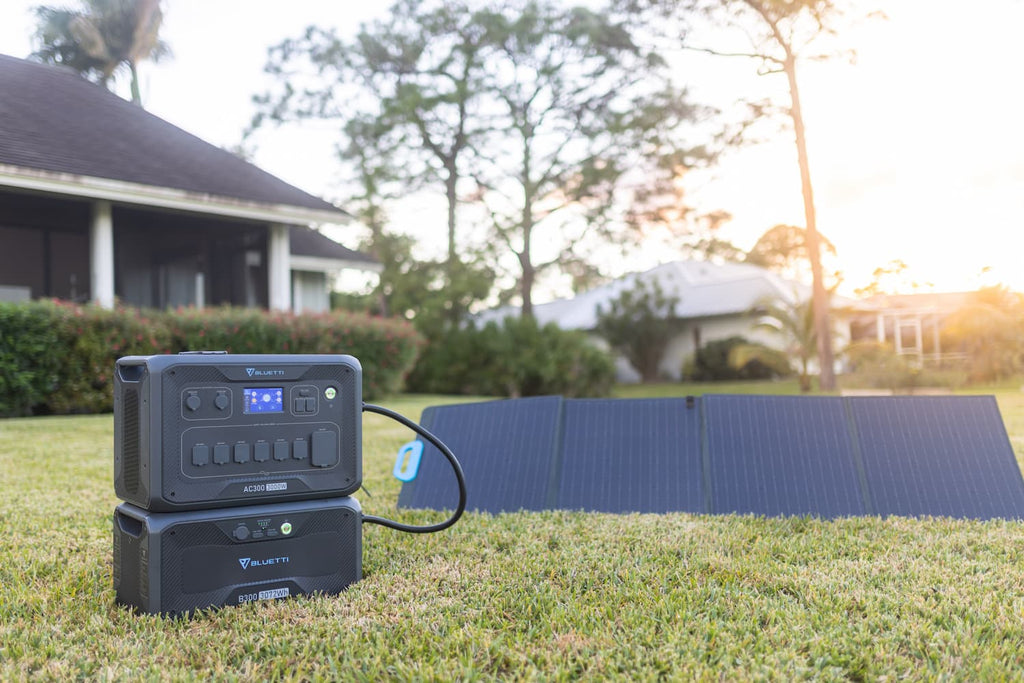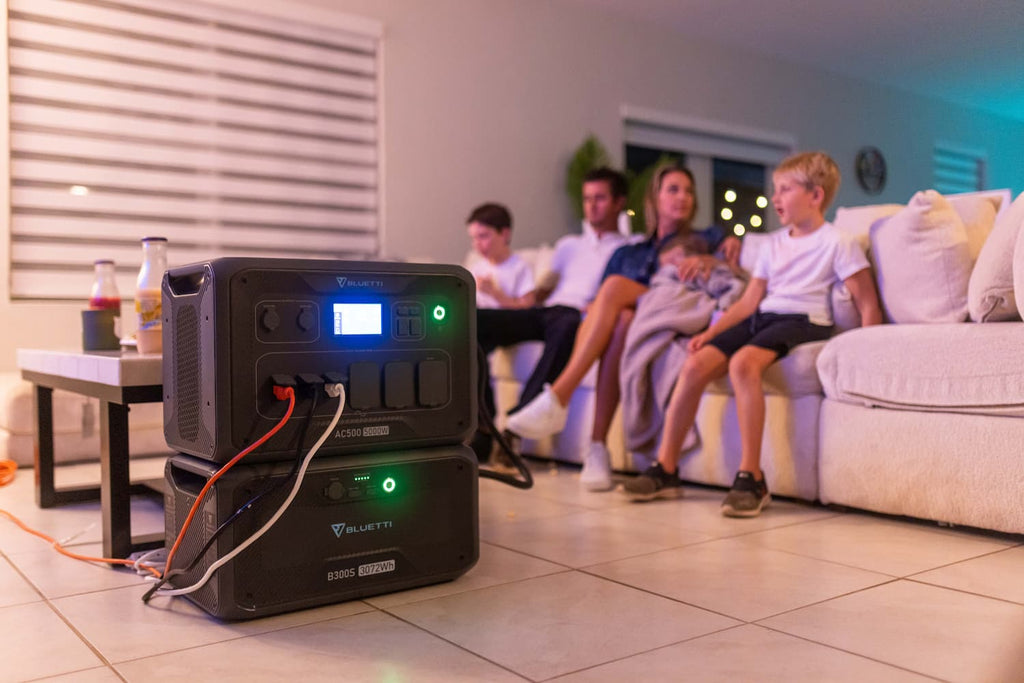The average installation cost of solar power in Canada is $3.34/watt, or $25,050 for a 7.5kW solar PV system. However, in the changing landscape of solar solutions, many factors come into action.
The energy needs, installation place, sizing, government incentive, etc, can change the cost significantly. In any case, adopting solutions leads to low bills for years and using clean energy. To assist you further, here's everything about the cost of solar panels in Canada and other helpful information.
Types of Solar Panel Systems
According to the type of systems, there are three basic types of solar panel systems:
Grid-Tied Systems: These solar panels are attached to the electrical grid. Extra energy generated by the panels is sent back to the grid, earning you credits. When solar panels are not yielding electricity, you pull power from the grid.
Off-Grid Systems: Off-grid solar systems are independent and not attached to the electrical grid. They store surplus energy in batteries when the sun is not shining.
Hybrid Systems: Hybrid systems integrate solar panels with other energy sources, such as backup generators or wind turbines. These techniques provide more dependability in areas with uneven sunlight or homes with increased energy needs.
Also, according to the nature of the panels used, there are some popular types of systems like:
Monocrystalline Solar Panels: They are the most widely used and feature single silicon crystal. They look like solid black but have some white space all over them. It lasts over 25 years, uses less space, and has a maximum. However, they can be costly.
Polycrystalline Solar Panels: They are made from silicon solar cells with old technology. They have a blue shade that's marbled in formation. It lasts for more than 25 years and is more affordable. But, they are less efficient and take up more space.
Thin-Film Solar Panel Design: They are black, flat, and flexible in shape and size. Also, it is most affordable. But, its efficiency is not great.
So, outlining the solar panel system and types will help you set the right foot. You can gradually switch from an on-grid to a grid-tied and then an off-grid system. Also, choosing the right quality of panels means they will last for years.
Cost of Solar Panels for Canadian Homes
The $3 per watt is the calculated pricing for installing solar panels on your roof. Assume you're considering a solar panel system for your average Canadian home, which usually needs around 5 to 10 kW of solar panels. In that case, you'd see approximately $15,000 for a 5 kW system. The cost per watt tends to decrease as the system's size goes up. So, if you're considering a more extensive setup, the cost per watt is less than $3.
The excellent news is that different regions across Canada offer rebates and other incentives for people who want to welcome solar power. These incentives differ from region to region, so it's good to check with professionals to see if you're eligible for such a program.
These programs are executed to speed up the installation of solar solutions at home and even in commercial spaces. This may help you reduce upfront costs a lot.
Factors Affecting Solar Panel Costs in Canada

Here are some factors which may affect the Solar Panel Costs in Canada
The size of the system: The solar panel system you need is a fundamental price factor. More extensive systems with more panels will naturally cost more. Your energy consumption and purposes will decide the system's size.
Battery Storage: If you opt for an off-grid system or want to store extra energy, battery storage can add to the general cost. Also, with battery storage, you can totally rely on solar solutions, which means negligible bills.
Equipment Quality: The grade of the solar panels, inverters, and other gear you choose can impact costs. High-quality parts may be more costly but can lead to better long-term performance.
Local Regulations: Local permitting and rules can influence costs. Some areas may have additional requirements or fees.
Roof Condition: The state of your roof can impact the cost. The expenses must be considered if your roof needs restoration or mounting to support solar panels.
Orientation and Tilt: The direction and tilt of your solar panels can impact efficiency. Adjustments may be required to optimize energy production.
Shading: Shading from trees, buildings, or other obstacles can lower energy production and may demand extra mitigating tools.
Choice of Installer: Various installers may charge different rates. It's important to get numerous quotes and select a respected installer.
How Long Does It Take for Solar Panels to Pay for Themselves?
The "pay themselves time for the solar panels" can be 5 to 15 years. The homeowners are curious to know the payback time after investing so much. But the good news is if you choose the right panels, backup systems, installation place, etc, the payback time will arrive soon.
All the factors mentioned above decide the payback time. Thanks to the technology and quick solutions, you will get lots of benefits from this installation.
Moreover, opting for solar solutions with the help of panels and solar generators means you are harnessing solar energy. It's the ultimate renewable energy source, indicating a negligible carbon footprint. It's a great initiative for Mother Earth. Moreover, it makes your solutions independent, eco-friendly and budget friendly too.
Benefits of Using Solar in Canada
Here are some amazing benefits of using solar solutions in Canada:
Reduced energy bills: Solar panels can substantially decrease or eliminate energy bills. It relies on the size of the system and your energy consumption.
Return on investment is good: Solar panels can deliver a significant return on investment over time. The energy savings and possible revenue from excess energy production can neutralize the initial costs.
Spike in home value: If you have installed solar panels and complete energy solutions at home, its re-sale and overall value increase greatly.
You can avail Government incentives: Government incentives, rebates, and tax credits can lower the upfront cost and improve the financial feasibility of solar panel installations.
Satisfaction: Revolutionizing your energy needs for better means peace of mind. These solutions will put less stress on the environment, lower bills, and add convenience. That makes you more content in your choices.
Environmental benefits: Solar panels decrease your carbon footprint and create a cleaner environment. They assist in combating climate change and lower greenhouse gas emissions.
Energy independence: Solar panels provide a capacity for energy independence, particularly with off-grid or hybrid systems. This can be important during power outages or in remote areas.
Solar Generator for Use with Solar Panels
The solar panels absorb the sunlight and generate electricity during sunlight hours. Now, to make your home truly energy-independent, you have to pair it with a solar generator.
It helps to store all the energy produced by the solar panels and provide it at night, during bad weather or in an emergency.

One such amazing product is BLUETTI AC300 + 1*B300 Home Battery Backup. It's a 3,000W AC pure sine wave inverter with a 6,000W surge. Moreover, it has a 3,072Wh capacity, which can be expanded to 4 × B300 for 12,288Wh, which is groundbreaking.
Plus, it's seven-ways chargeable with AC/Solar/Car/Generator/Lead-acid Battery/Dual AC/AC+Solar. With over 16 output ports, you can directly power multiple devices. Also, with a LiFePO4 battery with 3,500 Life cycles to 80%, it's the most reliable product. It ensures you have access to power with its expandable and flexible features.

Another modular, flexible and reliable one is the BLUETTI EP500Pro Solar Power Station. It's a 3000W pure sine wave output inverter with a battery capacity of 5100Wh.
Moreover, it's a movable power station with sturdy wheels. It also features LiFePO4, 3500+ cycles to 80% capacity, AC and solar panel charging. With multiple output ports, a great warranty and a monitoring system, it's one of the valuable additions.
Final Thoughts
The cost of solar panels in Canada depends on many factors. However, having an idea of energy needs, incentives, location, etc., will help you estimate it more accurately. So, use solar panels and battery solutions to improve your energy solution. It will help you gather, use and store the sun's energy to power your home. This is a great initiative for the environment. It also makes your energy needs more affordable. So go through all the points and choose the best solutions.




